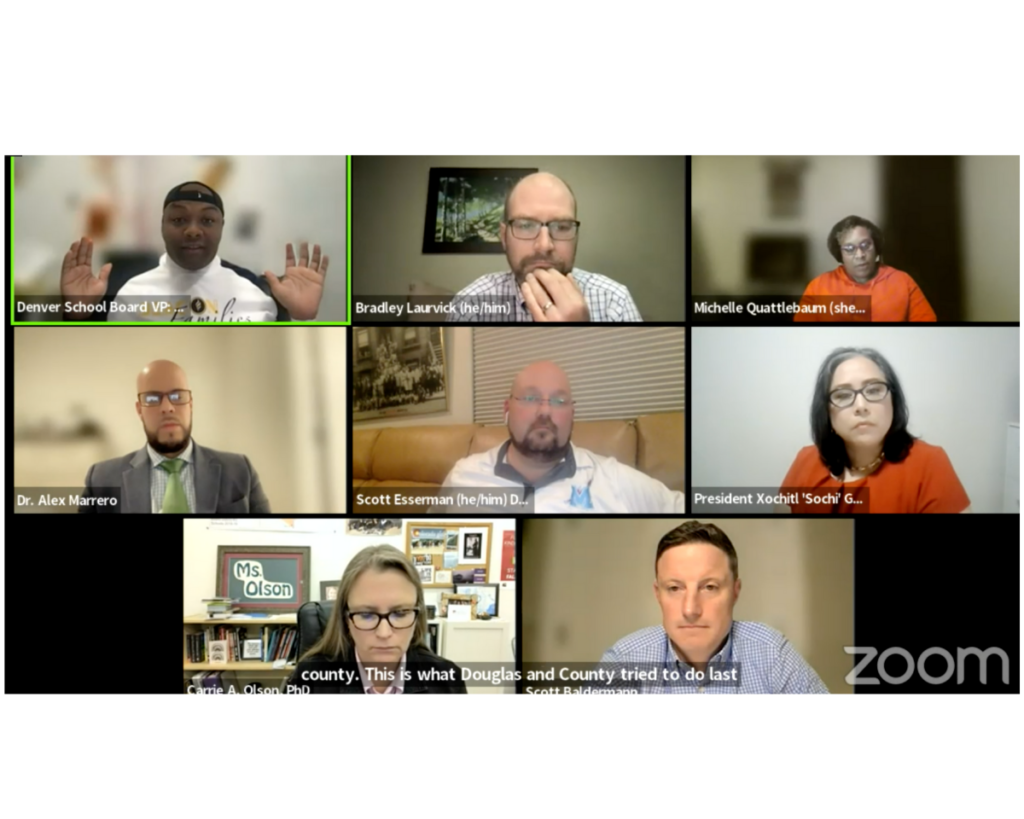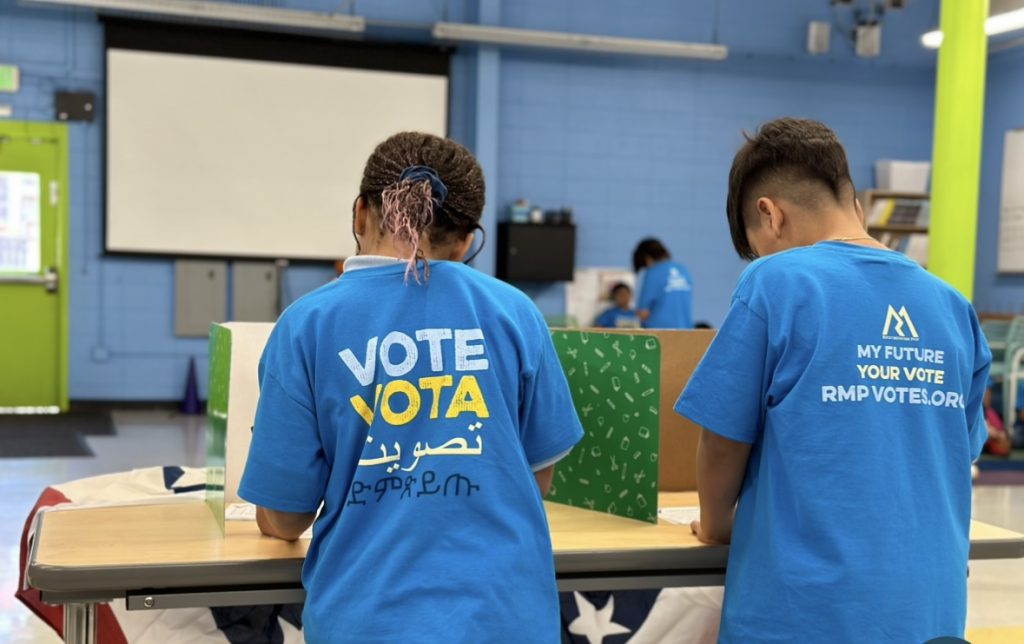The Denver school board voted 5-2 just before midnight Thursday night to curtail the autonomy of the district’s 52 innovation schools by prohibiting waivers from portions of the teachers union contract during future innovation plan renewals.
The vote came after almost six hours of impassioned comments from the public, overwhelmingly tilted against the changes the board ultimately approved.
And the board debate before the vote revealed deep fissures among members, who, in the wake of last November’s election, appeared to represent a unified progressive coalition.
Board Vice President Tay Anderson, who earlier in the evening proposed tabling a decision until June to launch a more authentic community process, ultimately abandoned that idea and said he could not support the so-called Executive Limitation for Standard Teacher Rights and Protections. Anderson gave a detailed explanation of his thought process in a blog post published earlier Thursday.
Under the 2008 Innovation Schools Act, innovation schools operate under specifically designed waivers from both the collective bargaining agreement and district rules and regulations. Schools design their own innovation plans, which must be approved by 60 percent of the school’s staff. Removing the teacher contract waivers could limit the schools’ ability to operate as they have in the past. But the waivers have long been a sore point for the Denver Classroom Teacher Association, which views them as an attack on teacher rights.
Anderson said he was receiving text messages during the debate from Black teachers and principals, who said they would leave the district should the policy pass.
“That’s unacceptable. I can’t just let those black leaders down,” Anderson said. “I can’t sit here and endorse a process that’s going to chase out people that look like me. I will have to answer for that.”
Anderson also called out some of his fellow board members for what he implied was hypocrisy. “I don’t want to (see anybody) out here wearing Black Lives Matter t-shirts. I don’t want to see no BLM signs. I don’t want to see ‘black educators matter.’ We’ve got black leaders that walked out because of this plan and we’ve got black teachers that walked out because of this plan, because we didn’t at least afford the time.”
Board member Scott Esserman, who ultimately voted to approve the new policy, also spoke out against the process that led to the vote.
“This was a process that was ambush governance. We can call it Policy Governance if we want, but we caught most of our community by surprise,” he said. “And we’ve done nothing to heal that damage. We don’t have a board that will own an apology for the stress that we’ve mounted upon stress that already existed. We just want to move forward out of self righteousness. And that’s troubling.”
Board President Xóchitl “Sochi” Gaytán angered some of her colleagues by implying that they were buckling to community pressure and voting contrary to their consciences. She said that the board appeared to have reached consensus Monday on a simplified proposal presented by Superintendent Alex Marrero.
“I don’t know what happened between Monday and now but my colleagues must have received some pressure where that changed their minds. At least that’s how I understood it,” Gaytan said.
Gaytan also said the proposal was introduced two months ago, allowing ample time for community input. During those 60 days, she said, the board has received “information on how this current education system, nationwide and locally, has failed licensed teachers across the district.”
“I ran on teachers rights, I ran on being able to get on this board and have these discussions and make these bold moves,” she said. “And that is part of what I believe is the vision for this board, to continue to move forward so that we are affecting our teachers in a positive way.”
Michelle Quattlebaum, elected with Gaytan last November, took issue with the board president’s statement. “To say that I don’t value teachers because I believe that this process is flawed, I take offense to that.” Quattlebaum cast the other vote against the proposal.
“We are seven intelligent individuals elected (to have hard conversations).That doesn’t mean we have to agree, but we can do it with respect. We can do it without giving backhanded digs at each other. The community sees that. They understand that. We’re better than that,” Quattlebaum said.




